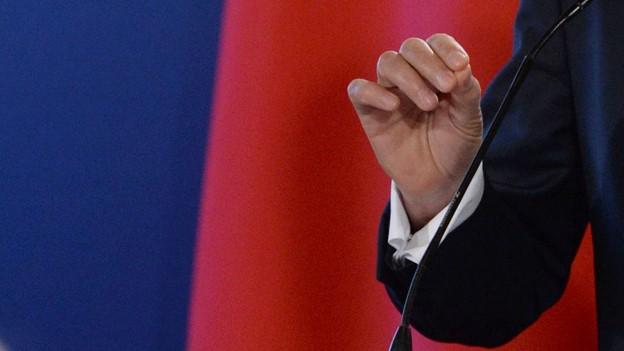Brexit: Government 'to stand up' for Gibraltar's interests
- Published
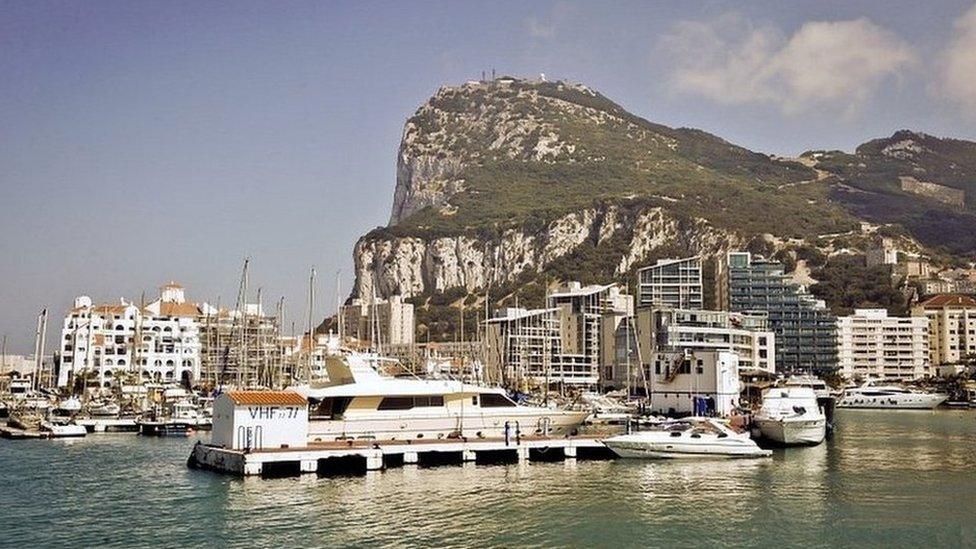
Gibraltarians voted overwhelmingly to remain in the EU
The UK has said it will stand up for Gibraltar's interests after the territory accused Spain of using Brexit to forward its territorial aims.
After reported lobbying from Spain, the EU's Brexit negotiation strategy is that decisions affecting Gibraltar will be run past the Spanish government.
Labour's Keir Starmer said Gibraltar should not be a "bargaining chip".
Foreign Secretary Boris Johnson has insisted Britain remains "implacable and rock-like" in its support.
Mr Johnson held talks on Friday with Gibraltar's chief minister to reassure him of the UK government's continued backing.
Mr Johnson met with Fabian Picardo who said the territory was being singled out for "unnecessary, unjustified and unacceptable" discrimination by Spain.
An EU source told the BBC the inclusion of the Gibraltar issue in the document triggering Article 50 had come after lobbying from Spain.
However, Theresa May had not mentioned Gibraltar once in her 2,200-word letter, starting the Brexit process.
Lord Boswell, chairman of the House of Lords EU Committee, said the government must not give the impression that Gibraltar is an "afterthought".
Sir Keir, the shadow Brexit secretary, has told Brexit Secretary David Davis that Gibraltar's sovereignty and interests must be protected.
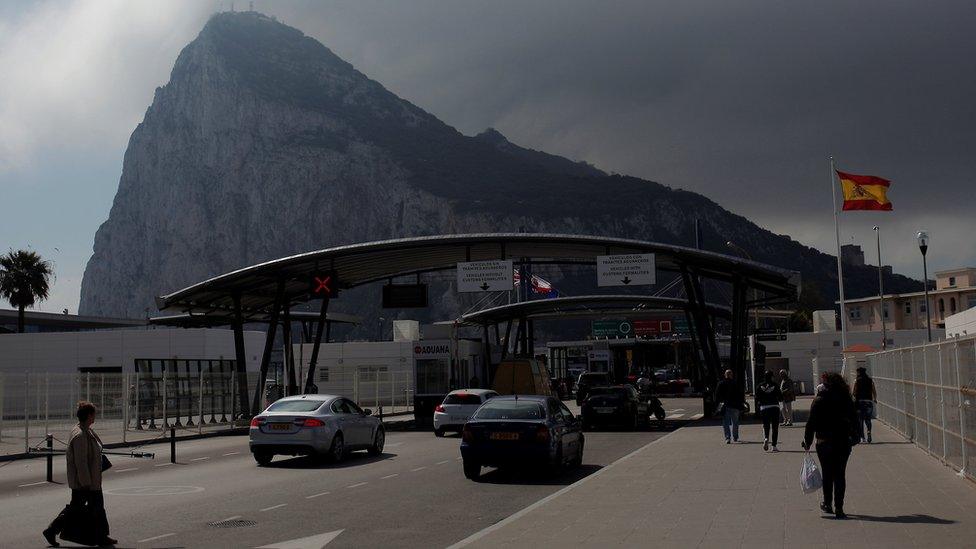
Spain has long contested Britain's 300-year rule of Gibraltar
Clare Moody, Labour MEP for Gibraltar and south west England, told BBC Radio Four's Today programme it was the government's job to "represent the people of Gibraltar".
She said: "I was amazed that they failed to do that in the letter they sent on Wednesday.
"It worries me that we are about to enter into the most detailed negotiations that we have known for decades.
"If the government has overlooked the interests of Gibraltar, which is a crucial part of the kind of constitutional arrangements of our membership of the European Union, then what else are they going to overlook as well?"
Christian Hernandez, president of the Gibraltar Chamber of Commerce, told the programme that the British government needed to "stand firm in the face of Spanish bullying".
"We don't want to be independent from the UK.
"We've made it very clear in the last 100 years, in the last 20 years, in the last 15 years, we want a constitutional relationship with the UK, where we continue to be part of the UK and independence is not something we aspire to," he added.
Spain has long contested Britain's 300 year-rule of Gibraltar.
Gibraltarians, who number about 30,000, rejected by 99% to 1% the idea of the UK sharing sovereignty with Spain, in a vote in 2002.
However, Spain has continued to press its territorial claim.
Following last June's EU referendum - in which Gibraltar voted by 96% to 4% to remain in the EU - Spain's then foreign minister suggested shared sovereignty could allow Gibraltarians to maintain some of the benefits of EU membership and enable Spain to "plant its flag" there.
But Alfonso Dastis, his successor, said in January that Spain would not put Gibraltar at the centre of the negotiations and it would be free to leave the EU if it wished.

Analysis: Why is this happening now?

By Matthew Cole, BBC News politics reporter
In the months since the referendum, many senior Spanish officials played down suggestions Brexit would be used to press Spain's claims to Gibraltar.
A source close to the Spanish prime minister even told me Mariano Rajoy is "not an adventurer" and would not seek to exploit Brexit, as it was "not his style".
So perhaps it is the sequencing of the Brexit talks announced by the EU Council President Donald Tusk on Friday that has presented an opportunity Spain does not want to miss.
Talks on the Brexit divorce will come first. Then talks on Britain's future trade deal with the bloc.
When Britain finally does get to negotiate its future trade deal with the EU, it could hold leverage over Spain, which will want to protect business interests and investments in the UK - like those of the Santander bank.
So that could explain why the Spanish are raising the issue of Gibraltar now, trying to get it settled as part of the Brexit divorce deal.
For now, Britain will hope other EU members decide backing Spain on this is a low priority - and won't insist it is part of the final deal.

In its draft Brexit negotiating guidelines, external, the European Council identified future arrangements for Gibraltar as one of its 26 core principles.
It wrote: "After the UK leaves the union, no agreement between the EU and the UK may apply to the territory of Gibraltar without agreement between Spain and the UK."
Brussels officials were quoted by the Guardian as saying the EU was standing up for its members' interests.
"That means Spain now," a senior EU official told the newspaper, external.
"Any extension of the deal [after withdrawal] to Gibraltar... will require the support of Spain. [The text] recognises that there are two parties to this dispute."

Gibraltar: key facts
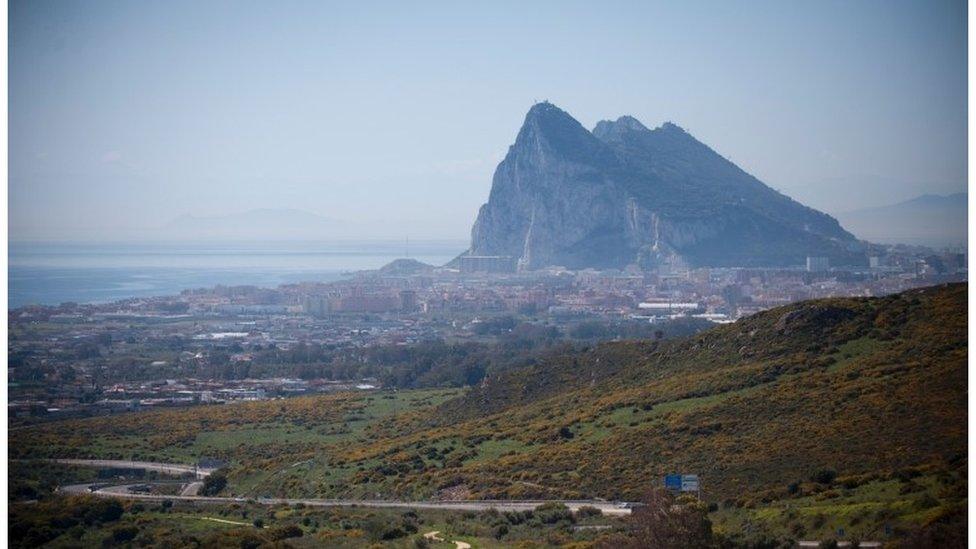
Gibraltarians are British citizens but they run their own affairs under a chief minister
The territory is self-governing in all matters - including taxation - except foreign policy and defence, which are dealt with by the UK government
Despite its small size, Gibraltar is strategically important, standing only 12 miles from the north coast of Africa. It has a UK military base, including a port and airstrip

'Shameful'
But Mr Picardo said: "This draft suggests that Spain is trying to get away with mortgaging the future relationship between the EU and Gibraltar to its usual obsession with our homeland.
"This is a disgraceful attempt by Spain to manipulate the European Council for its own, narrow, political interests.
"Brexit is already complicated enough without Spain trying to complicate it further."
Mr Lopresti, chairman of the UK's All-Party Parliamentary Group on Gibraltar, said there was no question of any negotiation over Gibraltar's future.
He will raise the matter with the secretary general of Nato, of which the UK and Spain are both members.
Mr Tusk said the UK must honour its financial commitments to the EU
He said: "It is shameful that the EU have attempted to allow Spain an effective veto over the future of British sovereign territory, flying in the face of the will of the people of Gibraltar."
Labour MP Mary Creagh, a supporter of the Open Britain campaign group, said Gibraltarians risked being treated as "pawns" in the Brexit process.
Commuting issue
Gibraltar's government has ruled out any dilution of sovereignty in return for continued access to the European single market or other benefits attached to EU membership.
Key issues in post-Brexit negotiations relating to Gibraltar are likely to be border controls - thousands of workers commute in and out of the territory from the Spanish mainland every day - and airport landing rights.
- Published1 April 2017
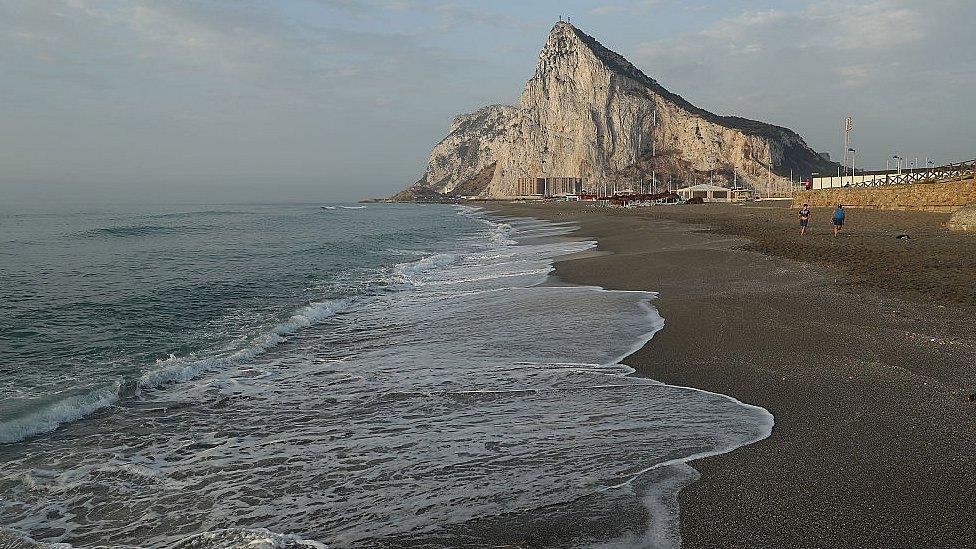
- Published1 March 2017

- Published31 March 2017
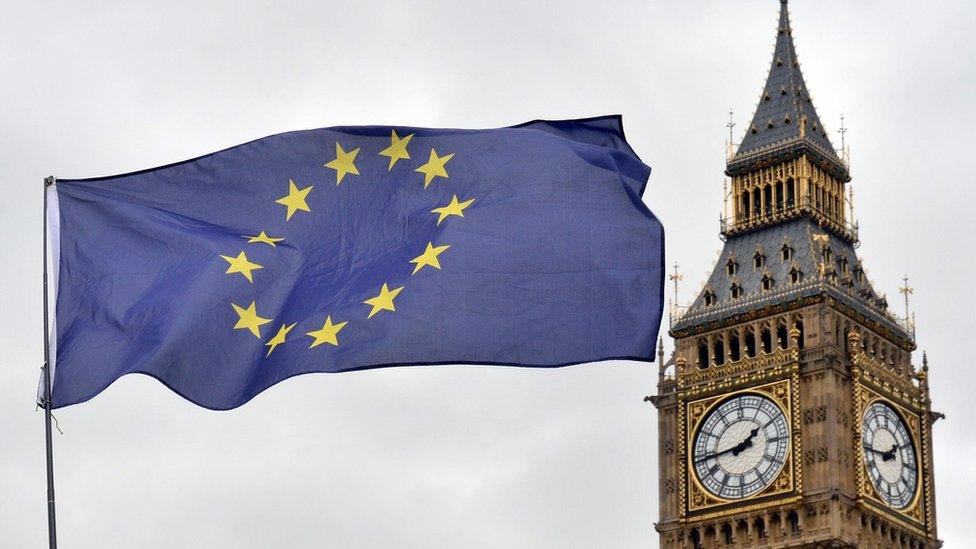
- Published29 April 2017
